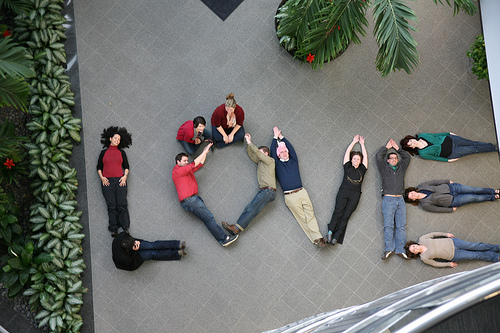Caring Love
“Keep away from those who try to belittle your ambitions. Small people always do that, but the really great make you believe that you too can become great.”
-Mark Twain
What is caring love? Certainly, many would describe it in different ways. According to the Oxford Dictionaries, “care” is defined as “the provision of what is necessary for the health, welfare, maintenance, and protection of someone or something.”
With this in mind, caring love essentially boils down to any type of action whose purpose is to promote wellbeing. Caring love happens most with the important people in our lives, such as family members and friends. But, it can also happen with endeavors, such as one’s life work, or a hobby of great personal meaning.
William James (1842 – 1910), a pioneer in the field of American psychology, wrote about the unconditioned heart that is born to love and delight in all living beings:
“If you say that this is absurd, that we cannot be in love with everyone at once, I merely point out to you that, as a matter of fact, certain persons do exist with an enormous capacity for friendship and for taking delight in other people’s lives; and that such person know more of truth than if their hearts were not so big. The vice of ordinary Jack and Jill affection is not its intensity, but its exclusions and its jealousies. Leave those out, and you see that the ideal I am holding up before you, however impracticable to-day, yet contains nothing intrinsically absurd.”
This is similar to what Tim Jackins, leader of the International Re-Evaluation Communities, wrote in more recent times, that “Love is the way two humans naturally feel about each other. This is any two humans.”
Unfortunately, we all receive so much conditioning that separates us from others, both literally and psychologically speaking. For example, physical differences separate girls from boys in many contexts. Young people are often separated from the old. The arbitrary concept of “race” is used to categorize and divide. Religious associations create distinctions between one group and another. And, the list goes on. While it’s helpful to recognize difference and have affiliations with others with whom we share mutual interests, it’s important to remember that we all have much more in common, than we do in difference. Unfortunately, it’s this sense of separation that inhibits our innately loving and caring attitudes toward others. At its worst, this separation can manifest in the ugliest of ways, such as violence toward others seen as less worthy or human.
Good friends show care toward one another. The benefits of close friendships, and alternatively, the drawbacks of its lack thereof, are numerous. Studies show that healthy relationships impact our bodies and minds in many positive ways, by providing an increase in vitality, energy, resilience and life meaning. Alternatively, researchers have found that social isolation may be as bad for your health as smoking, lack of exercise, and obesity (Cacioppo and Hawkley, 2003).
University of Chicago, Professor of Psychology, John Cacioppo notes that “Loneliness not only alters behavior, but loneliness is related to greater resistance to blood flow through your cardiovascular system. Loneliness leads to higher rises in morning levels of the stress hormone cortisol, altered gene expression in immune cells, poorer immune function, higher blood pressure and an increased level of depression.”
In addition to being directed toward specific people in our lives, caring love can be expressed through work, whether that work is about making a living, volunteering or engaging in something pleasurable. Commitment and loyalty are two qualities associated with caring love.
Albert Ellis, the founder of cognitive-behavioral therapy said: “the art of love is largely the art of persistence.” Making a commitment to something is a way of expressing trust in the process, a concept that is related to love. Regardless of the actual “outcome,” there is value in deciding to stick to something, to be persistent. Successful people learn to delay short-term gratification for the long-term fruits of their labor. Being persistent, having faith in a project – whether it’s a hobby, cause, or one’s career – can open doors to places previously unimagined.
Needless to say, there are many benefits to engaging in activities about which one feels passionate. Passion, another correlate of love, brings energy and sense of purpose to one’s life. Engaging in activities that are not inspiring (e.g., doing it just for the money, or doing it because that’s what your parents expected you to do), tends to do the opposite. As self-help guru Wayne Dyer, PhD. wrote: “Doing what you love is the cornerstone of having abundance in your life.”
If you are having difficulty taking steps to express your caring love to others or to a specific dream, reflect on the wise words of Mark Twain when he said: “Twenty years from now you will be more disappointed by the things that you didn’t do than by the ones you did do. So throw off the bowlines. Sail away from the safe harbor. Catch the trade winds in your sails. Explore. Dream. Discover.”
Leave a reply
You must be logged in to post a comment.


Mark Hewitt said on September 13, 2019
Good to hear this here.